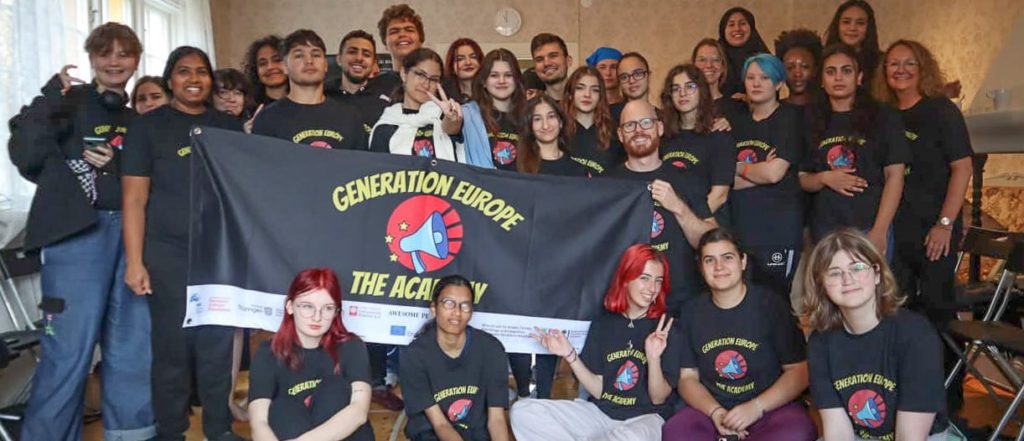Press release of Caritasverband Koblenz e.V.: The migration service of the Caritas accompanied young people on an international youth encounter in Sweden.
These were exciting days during the first stage of the three-year exchange of Generation Europe, an international network of youth organisations promoting an active European civil society. Travel groups from Romania and Germany made their way to Kopparberg, a small town about 200 km from the Swedish metropolis of Stockholm. The Koblenz delegation, accompanied by two staff members of the Caritas Migration Service, included youths and young adults from Afghanistan, Guinea, Moldova, Iran and Germany.
The aim of the week-long encounter was to give young people who would otherwise not have the chance to travel to other countries and thereby gain formative experiences access to democratic participation, European mobility and civic education. The Swedish hosts were “Awesome People”, an NGO founded in 2013 that runs national and international youth projects. “The name of our hosts was also their programme,” says Katharina Bell from the Youth Migration Service of Caritas Koblenz. “We met interesting people and had a valuable time together.”
Community spirit overcomes languages and cultural barriers
At the beginning, team building and getting to know each other were on the programme. Visits to tourist attractions or a bowling tournament ensured good vibes and communication in many languages as well as with hands and feet. “A great sense of community quickly developed within the multicultural group,” said Caritas employee Sabine Brunke. “Language barriers didn’t matter, cultural diversity was experienced as a great enrichment and opportunity.” Culinary delights from all over the world could be enjoyed at the joint cooking evening, including typical German potato salad, an Afghan rice dish and Arabic sweets.
European values and new self-confidence
The topic of Europe was high on the agenda in interactive workshops. The young people reported on the problems and challenges in their home countries, regarding the education system, professional opportunities, values and cultural orientations. Interesting discussions developed from which all participants benefited – regardless of whether they agreed or shared different views. In the context of the critical examination of European values, there was also an intensive exchange with Swedish local politicians. The common credo was to feel like responsible European citizens and to act with self-confidence, regardless of nationality or place of residence.
“It was a very special experience for our participants. They overcame not only national but also individual boundaries and gained many new experiences and new self-confidence,” social education worker Katharina Bell adds. “People who were previously strangers became friends. Everyone will benefit from these encounters for a long time to come.”
Sweden was the beginning: the next stage of the exchange will take place in Romania in summer, before the groups meet in Koblenz for the finale next year.
